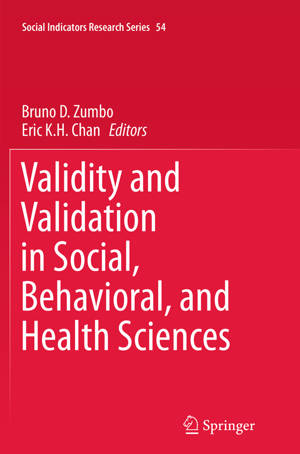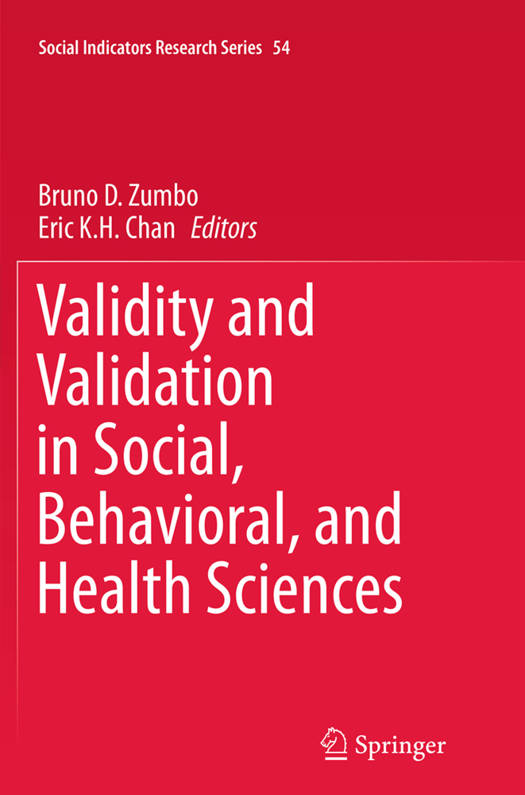
- Retrait gratuit dans votre magasin Club
- 7.000.000 titres dans notre catalogue
- Payer en toute sécurité
- Toujours un magasin près de chez vous
- Retrait gratuit dans votre magasin Club
- 7.000.0000 titres dans notre catalogue
- Payer en toute sécurité
- Toujours un magasin près de chez vous
Validity and Validation in Social, Behavioral, and Health Sciences
Description
This book combines an overview of validity theory, trends in validation practices and a review of standards and guidelines in several international jurisdictions with research synthesis of the validity evidence in different research areas. An overview of theory is both useful and timely, in view of the increased use of tests and measures for decision-making, ranking and policy purposes in large-scale testing, assessment and social indicators and quality of life research. Research synthesis is needed to help us assemble, critically appraise and integrate the overwhelming volume of research on validity in different contexts. Rather than examining whether any given measure is "valid", the focus is on a critical appraisal of the kinds of validity evidence reported in the published research literature. The five sources of validity evidence discussed are: content-related, response processes, internal structure, associations with other variables and consequences. The 15 syntheses includedhere, represent a broad sampling of psychosocial, health, medical and educational research settings, giving us an extensive evidential basis to build upon earlier studies. The book concludes with a meta-synthesis of the 15 syntheses and a discussion of the current thinking of validation practices by leading experts in the field.
Spécifications
Parties prenantes
- Editeur:
Contenu
- Nombre de pages :
- 327
- Langue:
- Anglais
- Collection :
- Tome:
- n° 54
Caractéristiques
- EAN:
- 9783319375854
- Date de parution :
- 23-08-16
- Format:
- Livre broché
- Format numérique:
- Trade paperback (VS)
- Dimensions :
- 156 mm x 234 mm
- Poids :
- 480 g

Les avis
Nous publions uniquement les avis qui respectent les conditions requises. Consultez nos conditions pour les avis.





